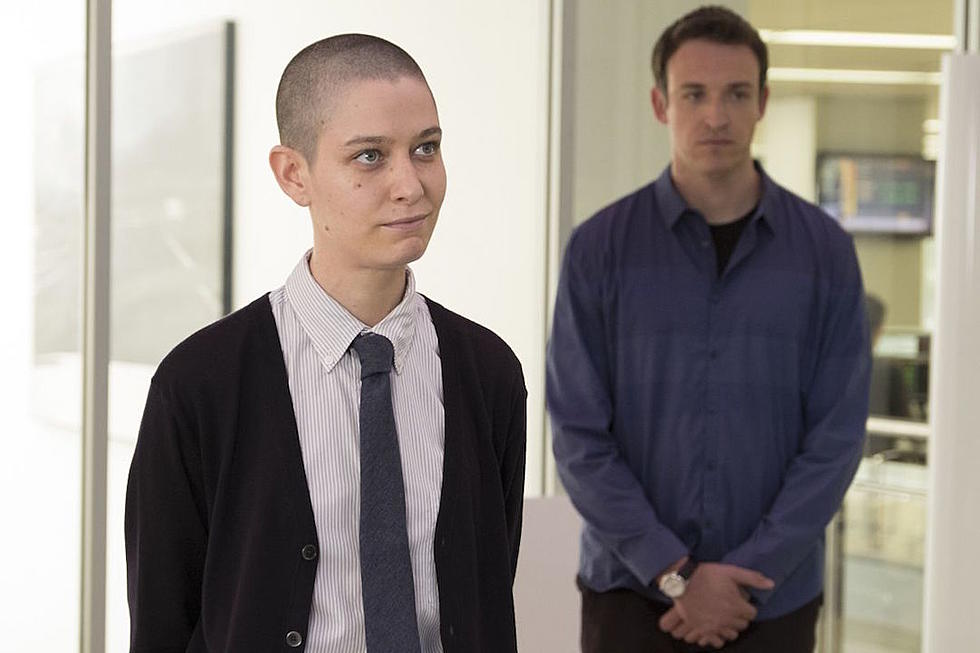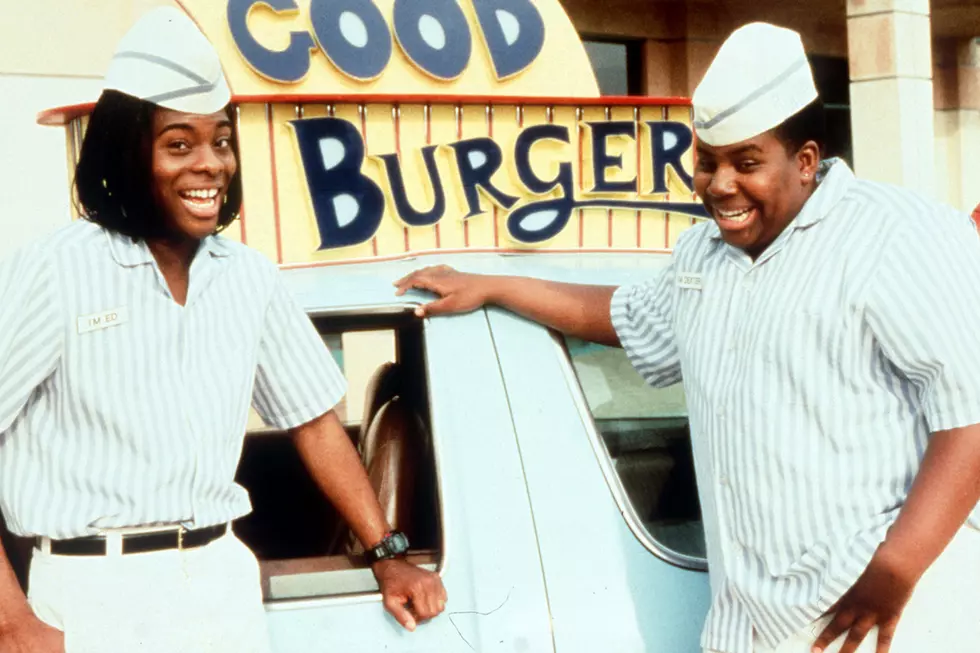
TV Academy Says Non-Binary ‘Billions’ Star Asia Kate Dillon Can Choose Their Emmy Category
Asia Kate Dillon has made TV history not just once, but twice this year. The star, known as one of the neo-Nazi inmates from Orange Is the New Black, became the first non-binary performer to play a non-binary character in a recurring TV role. And today Dillon sparked a massively progressive conversation around the Emmys.
In Showtime’s Billions, Dillon plays Taylor Mason, a financial intern at the hedge fund run by Damien Lewis’ Bobby Axelrod. When the network asked Dillon, who uses they, them, and their pronouns, how they wanted to submit their performance for Emmys consideration, they realized the inherent problem of the binary awards system: Would they have to submit for Supporting Actor or Supporting Actress? Dillon decided to send the Television Academy a personal letter to find out how the guidelines determined eligibility in either category. Variety published an excerpt from Dillon’s letter:
I’d like to know if in your eyes ‘actor’ and ‘actress’ denote anatomy or identity and why it is necessary to denote either in the first place? The reason I’m hoping to engage you in a conversation about this is because if the categories of ‘actor’ and ‘actress’ are in fact supposed to represent ‘best performance by a person who identifies as a woman’ and ‘best performance by a person who identifies as a man’ then there is no room for my identity within that award system binary. Furthermore, if the categories of ‘actor’ and ‘actress’ are meant to denote assigned sex I ask, respectfully, why is that necessary?
The TV Academy responded immediately and told Dillon they were free to choose the category they wanted to submit in. After having a conversation with the Academy, Dillon was told “anyone can submit under either category for any reason” and that there are no specific gender qualifications for either. The Billions star was pleased with the response telling Variety, “I found them to be 100% supportive. I really couldn’t have been happier.” Dillon chose to submit under Supporting Actor, preferring the non-gendered word to “actress.”
It’s huge that the Academy so quickly engaged in a conversation with Dillon about their letter and allowed the actor to make their own choice. While the lack of rules specifying gender categories for the awards show isn’t history-making in itself, the fact that Dillon so boldly questioned them about it, is able to choose their category, and is starting a conversation is. They may be the only out non-binary actor on a major television series right now, but there are more gender non-conforming actors out there waiting for their big break.
Dillon is helping create space for those performers to get roles, inspiring more screenwriters to write non-binary characters, and most incredibly, they’re helping spark necessary conversations around gender identity in film and TV. Though trans visibility has been increasing in the media over the past few years, non-binary folks are often omitted from discussions and portrayals. But things are changing, little by little. It was a big step earlier this year when Laverne Cox included non-binary people in her Grammys shout out for Gavin Grimm, followed by Moonlight writer Tarell Alvin McCraney dedicating his Oscar to folks who don’t identify as male or female.
It’s exciting to see mention of non-binary folks in the context of awards ceremonies, which inherently reinforce the gender binary. After all, how exactly does gender factor into a performance? And how much should the recognition of talent be defined by the way the person behind the role identities? Those are bigger questions for a larger conversation, but hopefully ones we can start to critically engage with as more non-cisgender performers get opportunities.
More From ScreenCrush









